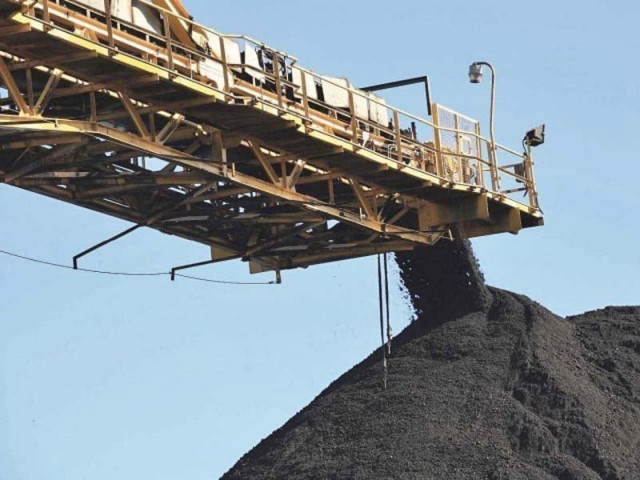Adequate supply: Regulator puts curbs on new coal-power projects
Will not extend upfront tariff beyond mid-Oct

A Nepra official elaborated that no extension in the upfront tariff meant that the regulator wanted no more power projects based on imported and local coal. PHOTO: FILE
The National Electric Power Regulatory Authority (Nepra) and the Private Power Infrastructure Board (PPIB) have so far approved nine coal-power projects of 8,433-megawatt cumulative capacity over the last two years.
The first imported coal-fired project of 1,320 megawatts at Qadarabad, Sahiwal district is expected to start production in December 2017, according to the PPIB.
In a notification, Nepra said, “Keeping in view the upcoming power projects on various technologies in the next two to six years, the authority has decided not to extend the existing upfront tariff beyond October 14, 2016.”
A Nepra official, requesting anonymity, elaborated that no extension in the upfront tariff meant that the regulator wanted no more power projects based on imported and local coal for the time being.
“There is no embargo on new power projects on Thar coal. Nepra has a different upfront tariff and set of regulations for Thar coal- power projects,” he said.
The notification added the existing upfront tariff for power generation on imported and local coal was determined on June 26, 2014 and notified on October 15, 2014.
“The upfront tariff was valid for two years. Accordingly, the tariff will be valid till October 14, 2016,” it said.
“The authority has further decided that in the future, imported/local coal power projects, if required, shall be inducted through competitive bidding by the relevant agency under the Nepra’s competitive bidding tariff (approval procedure) regulations, 2014.”
The official said the competitive bidding would help the regulator to bring new projects, when required, at a lower tariff.
He was of the view that the PPIB may conduct the bidding, if needed. “It may identify the sites of projects, invite bids and accept the lowest tariff,” he said.
The official pointed out that the projects to be approved through bidding would be offered a comparatively lower rate of return on investments and this was one of the basic reasons behind putting a halt to coal projects at the existing tariff.
“The regulator had thus far ensured a 17% accumulated rate of return on investment in the approved coal (imported/local) power projects,” he said.
According to the upfront tariff on coal-power projects, the return on equity will be in the range of 24.50% to 29.50% depending on the duration of construction (40-48 months) and whether the projects would run on imported or local coal.
“The rate of return given in the upfront tariff is not an accumulated one and included the period of project construction,” the official added.
Nepra has approved the upfront tariff in the range of Rs3.53-4.88 per kilowatt-hour, depending on the nature of financing (local or foreign), source of coal (local and imported) and installed capacity ranging from 220-1,099 megawatts. The tariff is for the first 10 years.
The tariff for another 20 years varies between Rs1.66 and Rs1.95 per kilowatt- hour.
220MW project shelved
Nishat (Chunian) Limited, following Nepra’s notification which put restrictions on new coal-fired projects, announced that it had abandoned its 220-megawatt coal-power project, according to a company notification sent to the Pakistan Stock Exchange.
Nishat (Chunian) Company Secretary and Director Finance Babar Ali Khan said the Ministry of Finance had earlier told the company that the country did not need more such power projects.
Published in The Express Tribune, September 27th, 2016.
Like Business on Facebook, follow @TribuneBiz on Twitter to stay informed and join in the conversation.



















COMMENTS
Comments are moderated and generally will be posted if they are on-topic and not abusive.
For more information, please see our Comments FAQ